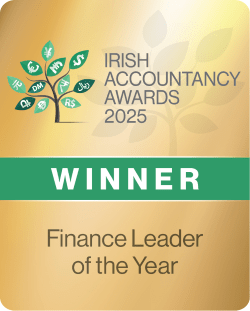Running a business in Ireland comes with its share of responsibilities, and completing your Form 11 tax return is one of the most important. We will walk you through everything you need to know about filing your Form 11 for the 2023 tax year, whether you’re running an e-commerce store, marketing agency, startup, or professional service firm.

Understanding Form 11
Form 11 is the annual tax return for self-assessed individuals in Ireland. It’s the document where you declare all your income, claim tax credits and reliefs, and calculate your tax liability.
Who needs to file Form 11?
- Self-employed individuals and freelancers
- Company directors owning more than 15% of ordinary shares
- Irish residents with foreign income or foreign assets
- Landlords with rental income
- Anyone with additional non-PAYE income over €5,000
- Individuals claiming certain tax reliefs or credits
Revenue provides detailed guidelines about filing requirements, but if you’re unsure about your status, contact us for personalised guidance.
Form 11 vs. Form 11S
Standard Form 11
Suitable for:
- Complex tax situations
- Multiple income sources
- Foreign income
- Investment income
- Property rental income
Form 11S
Ideal for:
- Simpler tax affairs
- Single income source
- Standard tax credits
- Minimal deductions
Key Changes For The 2023 Tax Year
Here are the crucial updates you need to know:
Income Tax Changes:
- Standard rate cut-off point increased to €40,000 for single persons
- Home Carer Tax Credit increased to €1,700
- Personal Tax Credit increased to €1,775
- Employee PRSI threshold increased
Business-Related Updates:
- Small benefit exemption increased to €1,000
- Enhanced remote working relief
- New digital reporting requirements for online platforms
- Modified rules for preliminary tax payments
These changes might affect how you:
- Calculate your tax liability
- Claim certain reliefs and credits
- Report specific types of income
- Plan your tax payments
Critical Deadlines And Important Dates
Mark these essential dates in your calendar:
For Paper Filing:
- 31 October 2024: Final submission deadline
- 31 October 2024: Payment deadline for 2023 balance
- 31 October 2024: Preliminary tax payment for 2024
For ROS Online Filing:
- Mid-November 2024: Extended online filing deadline (exact date TBC)
- Mid-November 2024: Extended payment deadline
- Mid-November 2024: Extended preliminary tax deadline
Pro Tip: Using accounting software like Xero, QuickBooks, or Sage can help you track these deadlines and prepare your documentation throughout the year.
Documentation And Filing Process
Having the right documentation at hand not only makes the process more efficient but also assists in accuracy and helps maximise your tax benefits. Let’s break down exactly what you need and how to organise it effectively.
Required Documentation
Before starting your Form 11 return, get these important documents together:
Financial Records:
- Annual accounts and financial statements
- Bank statements for all business accounts
- Sales invoices and purchase receipts
- Payroll records (if applicable)
- Vehicle mileage logs
- Home office expense records
Investment and Other Income:
- Dividend statements
- Interest certificates
- Foreign income documentation
- Rental income records
- Capital gains calculations
Personal Documentation:
- Previous year’s Form 11 (if applicable)
- PPS number
- Tax credit certificates
- Pension contribution statements
- Medical receipts
Filing Process Step-by-Step
Filing your Form 11 requires attention to detail and a systematic approach.
- Getting Started with ROS
First steps:
- Register for Revenue Online Service (ROS)
- Set up your digital certificate
- Familiarise yourself with the platform
- Review previous submissions if applicable
- Personal Information Section
Accuracy is crucial here:
- Personal details and PPS number
- Civil status and changes during the year
- Residential status
- Spouse or civil partner details (if applicable)

Income Sections And Industry-Specific Guidance
Different business types have unique tax considerations and reporting requirements.
- Income from Trades and Professions
Core Requirements
- Gross trading income
- Business expenses
- Capital allowances
- Stock relief
- Professional services withholding tax
- E-commerce Businesses
Key Considerations
- Platform fees and commissions
- Shipping and packaging costs
- Website hosting and maintenance
- Digital marketing expenses
- Payment processing fees
- Case Study: Online Fashion Store
Sarah’s business demonstrates typical considerations:
- Annual turnover: €300,000
- Platform fees: €30,000
- Shipping costs: €45,000
- Marketing expenses: €25,000
- Stock value: €100,000
- Tax Planning Strategy:
- Monthly expense tracking
- International sales documentation
- Platform fee categorisation
- Stock management system
- Digital receipt organisation
- For Marketing Agencies
Key Considerations
- Software subscriptions
- Client entertainment (within limits)
- Professional development
- Subcontractor payments
- Office equipment
- Case Study: Digital Marketing Agency
John’s agency illustrates common scenarios:
- Revenue: €500,000
- Staff costs: €200,000
- Software subscriptions: €30,000
- Office rent: €48,000
- Client entertainment: €10,000
- Tax Efficiency Measures:
- Staff benefit optimisation
- Software categorisation
- Workspace expense allocation
- Client entertainment tracking
- Professional development claims
- For Startups:
Key Considerations
- R&D expenses
- Patent costs
- Investment-related expenses
- Start-up costs
- Professional fees
- Case Study: SaaS Startup
Emma’s startup demonstrates specific considerations:
- Investment raised: €1,000,000
- R&D spending: €300,000
- Staff options scheme planning
- International expansion costs
- Pre-revenue phase considerations
- Rental Income
- Gross rental income
- Allowable expenses
- Mortgage interest
- Property repairs
- Insurance costs
- Investment Income
- Irish dividend income
- Foreign investment income
- Interest earned
- Government securities
- Other investment returns
Tax Credits And Reliefs
Understanding available credits and reliefs can significantly reduce your tax liability:
- Personal Credits:
- Personal Tax Credit
- Earned Income Credit
- Home Carer Credit
- Single Person Child Carer Credit
- Business-Related Reliefs:
- Start-up Relief for Entrepreneurs
- Research and Development Tax Credit
- Employment and Investment Incentive
- Remote Working Relief
- Industry-Specific Reliefs:
- Digital Gaming Tax Credit
- Film Relief
- Patent Royalty Exemption
- Knowledge Development Box Relief
Common Mistakes And How To Avoid Them
These preventable errors often cause issues during filing:
Documentation Errors:
- Missing or incomplete records
- Incorrect categorisation of expenses
- Poor record-keeping systems
- Missing deadline submissions
Calculation Mistakes:
- Incorrect preliminary tax calculations
- Wrong tax credit claims
- Miscalculated capital allowances
- Errors in foreign income conversion
Compliance Issues:
- Late filing without reasonable cause
- Incorrect registration status
- Missing supplementary forms
- Incomplete declarations
Filing Checklist
Follow this checklist to ensure a smooth filing process:
Before Filing:
- Gather all required documents
- Review tax changes for 2023
- Check eligibility for credits and reliefs
- Organise expense records
- Calculate preliminary tax
During Filing:
- Complete each section methodically
- Double-check all calculations
- Review supporting documentation
- Verify tax credit claims
- Check preliminary tax calculation
After Filing:
- Save confirmation receipts
- Calendar payment deadlines
- Store documentation securely
- Plan for next year’s return
- Schedule tax planning review
Professional Support And Resources
Visit our Tools & Resources page for:
- Tax calculators
- Record-keeping templates
- Industry guides
- Compliance checklists
- Professional advice
Don’t let tax compliance overwhelm you. The Benefits of Hiring an Accountant often outweigh the costs. Our team of expert accountants specialises in supporting Irish businesses like yours. Contact us today for a free consultation and let us help you navigate your Form 11 tax return with confidence.
FAQs
When is Form 11 due for 2023?
Paper filing by 31 October 2024, with extended deadlines for ROS online filing.
What happens if I file late?
Late filing incurs surcharges and interest charges on unpaid tax.
Can I amend my Form 11 after submission?
Yes, through ROS within four years of the tax year end.
Do I need to file Form 11 if I have PAYE income?
Only if you have additional non-PAYE income exceeding €5,000.
What records should I keep?
Keep all business receipts, bank statements, and relevant documentation for six years.
How do I calculate preliminary tax?
Pay 90% of current year liability or 100% of previous year liability.
Can I claim home office expenses?
Yes, if you work from home, you can claim a portion of utilities and other costs.
Do I need an accountant to file Form 11?
While not mandatory, professional help often proves valuable for complex returns.











